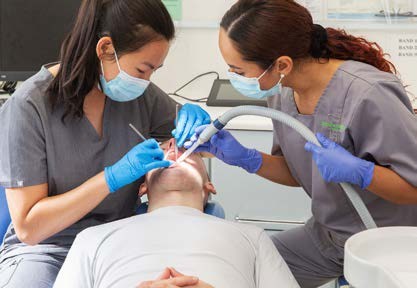UK News
New reforms aim for better NHS dental service access
NICE guidance recommends patients should recieve oral checkup based on health risk
Patients across the country will benefit from improved access to dental care under changes announced by NHS England, the organisation has shared. The first new reforms to the dental contract in 16 years have taken place.
These reforms mean NHS dentists will be paid more for treating more complex cases, such as people who need three fillings or more.
Dental therapists will also be able to accept patients for NHS treatments, providing fillings, sealants, and preventative care for adults and children, which will free up dentists’ time for urgent and complex cases.
Chief Dental Officer for England, Sara Hurley, commented: “The NHS is determined to overhaul dental provision, with a focus on increasing access to necessary dental care and supporting prevention. Today’s reforms are the first step on that journey.
“NHS dental staff are working hard to recover services, but the key to delivering this will be reform – these changes announced today will help teams carry out even more treatments, and help address the inevitable backlogs that have built up during the pandemic.”
In order to ensure more accessible services, under the new changes, dentists must update the NHS website and directory of services, so that patients can easily find the availability of dentists in their local area.
High-performing dental practices will also have the opportunity to increase their activity by a further 10%, in order to see as many patients as possible.
“Anyone with concerns about their dental health should contact their local dentist as they usually would or seek advice from NHS 111,” Hurley continued. “Infection prevention and control measures to protect staff and patients were introduced during the pandemic, limiting the number of procedures that NHS dentists could carry out.”

The new reforms will ensure that dentists who are operating at full capacity for the first time in two years will be able to recover dental services following the impact of the pandemic.
NICE guidance states that dental teams should see patients for an oral check-up based on their health risk which can be once every two years instead of every six months. This will ensure appointments are given to those most in need.